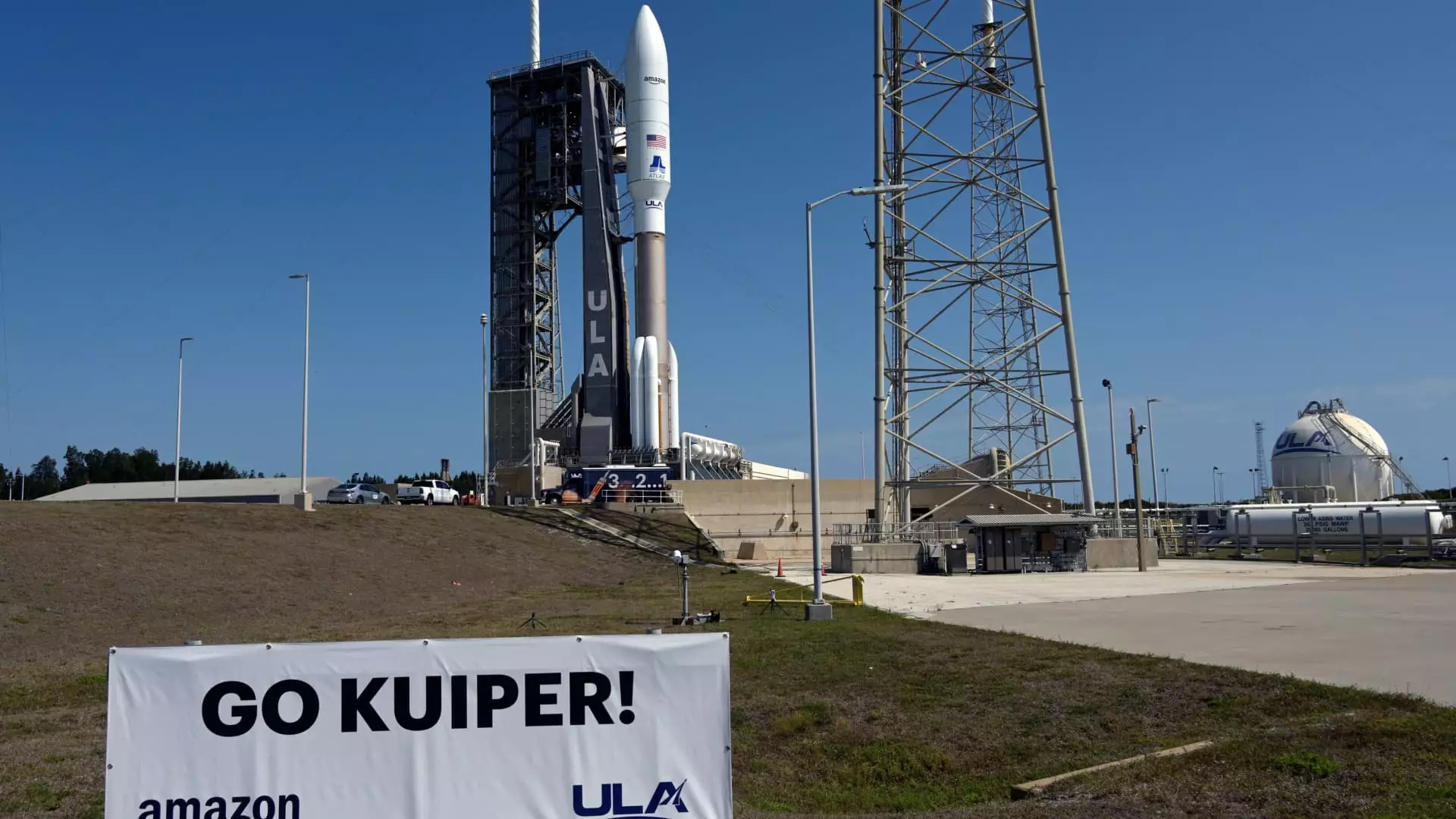In the theater of space exploration, delays can feel like a tragic comedy. United Launch Alliance (ULA) found itself in such a predicament on Monday when a critical launch to deliver Amazon’s Project Kuiper internet satellites was abruptly aborted. Scheduled with a mere half hour to go, the launch was scrapped due to technical complications involving the Atlas V rocket’s booster engine, specifically concerning an “elevated purge temperature.” The decision to halt the mission underscores not only ULA’s commitment to safety but also highlights the fragility of space logistics.
To the casual observer, these delays might seem like mere footnotes in the grand narrative of technological advancement. However, each setback also reflects the tension underlying the burgeoning satellite internet industry, a contest where stakes are incredibly high. Why is it that despite the immense investment in technology, human ingenuity still finds itself wrestling with elemental and mechanical hiccups? Such questions speak to both the hopes and frailties of humanity’s reach into space.
Amazon’s Ambitious Vision
Amazon strides into this landscape with an ambitious goal: a constellation of over 3,000 satellites aiming to provide high-speed internet to the underserved. Project Kuiper seeks to challenge industry leaders like Elon Musk’s SpaceX, which has established a dominant position with its Starlink program. However, the road to space-based internet is fraught with red tape, technical challenges, and unforeseen delays, as evidenced by ULA’s recent launch cancellation.
While it’s heartening to see corporate giants invest in infrastructural advancements, we must remain vigilant about who benefits from such leaps. Will this democratization of internet access be genuinely inclusive, or will it simply bolster the already powerful? The FCC’s ambitious deadlines—demanding that Amazon deploy over 1,600 satellites by July 2026—raise questions of feasibility amidst challenges that often surface last-minute. The race is not merely about satellites in orbit; it’s a question of who gains control over digital pathways that facilitate access to information.
The Broader Implications of Delays
Delays in launches have an outsized ripple effect. ULA’s aborted countdown doesn’t only impact Amazon’s timeline but also has implications for potentially millions of users waiting for improved internet access. In regions where connectivity is spotty or non-existent, even the smallest setback translates to prolonged digital isolation. These delays emphasize a critical issue often overlooked: the disparity in tech access across socioeconomic lines.
While tech companies pitch their services as universally beneficial, the reality is that not everyone shares equally in envisioning the digital future. There is a growing concern about how these new infrastructures may be used or misused. If a few corporations control the bulk of satellite internet, will they prioritize profit over equitable access? Technology must be accompanied by an ethical framework that champions accessibility and inclusivity.
In an era when digital connectivity is increasingly pivotal for social, economic, and educational purposes, it’s essential that we question not just the complexities of launching satellites, but also the motivations behind them. The stakes are high, and the conversation must evolve from mere technical feats to the very real implications for humanity.


Leave a Reply